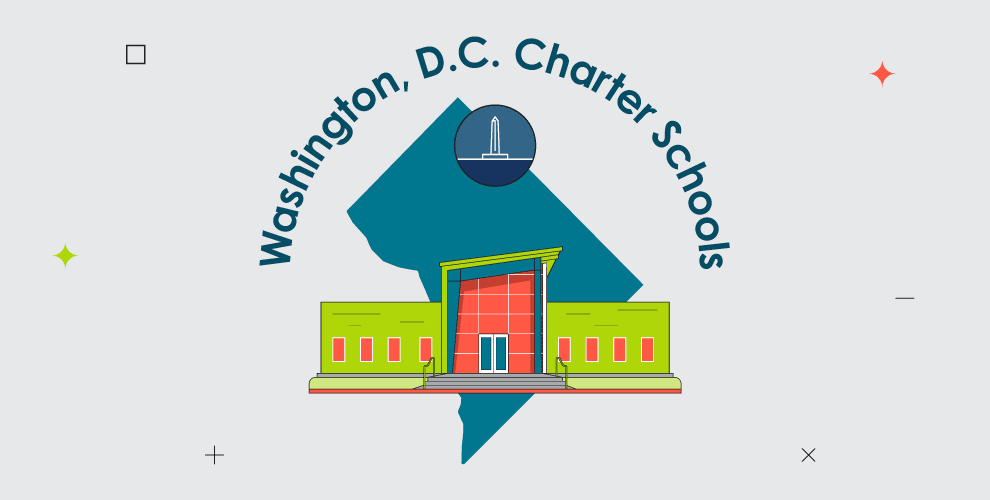How Charter Schools Work in Washington, D.C.
Charter schools are schools that are publicly funded but independently run. This unique operation model sets charter schools apart from traditional public schools and gives them more freedom over things like curricula, staffing, and budgeting.
In our article “How Do Charter Schools Work?”, we covered the ins and outs of what charter schools are and how they differ from traditional public schools and private schools. But charter schools are not one-size-fits-all; specific laws and regulations vary depending on where you live.
D.C. parents—here’s what you need to know about local public charter schools.
History
Washington, D.C. enacted its first charter school law in 1996. Three public schools opened that fall, with more and more schools cropping up over the next few years.
The popularity of D.C. charter schools really began taking off in the 2000s. In 2002, around 15% of public school students in D.C. were attending charter schools. By the end of the decade, this number was over 35%.
In 2014, Washington, D.C. ranked higher than any other state in the National Alliance for Public Charter Schools’ Health of the Public Charter School Movement report. The report analyzed the growth, quality, and innovation of different charter school movements around the country.
Today, there are over 130 public charter schools in Washington, D.C. The District’s charter schools enroll nearly as many students as its traditional public schools.
Enrollment
According to the D.C. Public Charter School Board, there over 45,000 students enrolled in D.C.’s 135 charter schools. Approximately 48% of public school students in the District attend a charter school.
Charter schools in D.C. are open to all students, so parents can choose a charter school that best suits their child. The only instance in which preference is given to particular groups of students is if a traditional public school coverts to a charter school. In that case, the school may prioritize enrollments for existing students.
Even though there are no specific requirements for attending a charter school in D.C., charter schools still require applications. If a school receives more applications than available seats, students will be chosen via a lottery system.
Funding
D.C. charter schools are funded similarly to the District’s other public schools. Funding comes primarily from local taxes and the specific amount that each school receives is calculated based on enrollment.
While D.C.’s traditional public schools and charter schools are funded in largely the same fashion, charter schools do have more flexibility in how they put those funds to use. For example, they can decide how much to pay teachers and how much money to allocate for certain academic programs. Budget decisions are made by the independent charter school operators, not by the District.
Since D.C. charter schools are publicly funded, they are completely free to attend.
Accountability
Charter schools are held accountable by authorized public chartering agencies. In D.C., the D.C. Public Charter School Board (PCSB) is the sole authorizer of charter schools.
All D.C. charter schools are required to meet performance benchmarks laid out by the PCSB. The PCSB conducts in-depth reviews of the District’s independent charter school operators at least once every five years, and will revoke charters for schools that are under-performing. Additionally, D.C. charter schools need to meet the same District-wide academic standards as traditional public schools.
BASIS Washington, D.C. could be the right fit for your child
BASIS DC is a tuition-free, public charter school serving grades 5–12. We offer a world-class, STEM-infused, liberal arts curriculum with a strong student support system.
As part of the BASIS Charter Schools network, BASIS DC is dedicated to helping its students excel at nationally competitive levels. Schedule a tour today to get a first-hand look at our campus and learn what sets our schools apart.
For more information on different education options available for your family, download our guide, “A Parent’s Guide to School Choice.”
- BASIS Charter Schools: #1 Once Again! - April 23, 2024
- Introducing BASIS DC’s New Head of School, Calvery Cooper - April 10, 2024
- How BASIS DC’s House System Fosters Teamwork and Community - April 9, 2024



